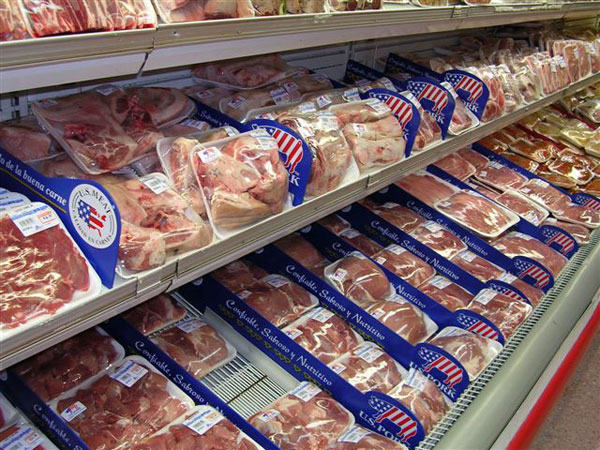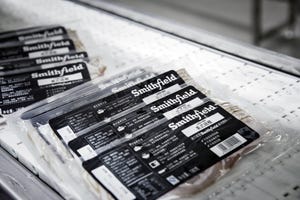
A bipartisan group of 19 senators are asking the administration to appeal the recent World Trade Organization Dispute Settlement Panel's (DSP) ruling against the United States' mandatory country-of-origin labeling (COOL) regulation. The senators' expressed concerns are that the ruling would hurt consumers' right to know where their food comes from and producers' ability to sell their high-quality products. In a letter to Secretary of Agriculture Tom Vilsack and U.S. Trade Representative Ron Kirk, the senators said, "The DSP validated the statutory authority for the United States to require such labeling; however, the panel also found that the manner in which the program was implemented treats cattle and hogs from those countries less favorably than U.S.-origin livestock. While we are pleased that the DSP affirmed our right to require such labeling, we are concerned about the impact that the DSP’s ruling will have on our ability to continue providing such information to consumers." Senator Tim Johnson (D-SD) said, "I want the administration to appeal the decision because people want to know if the beef or pork they are eating was raised in the USA." The administration has until early next year to decide whether to appeal the case. Senators Johnson and Mike Enzi (R-WY) organized the letter. The case against the United States was filed by Canada and Mexico.
Downer Animal Legislation — Congressman Gary Ackerman (D-NY) plans to introduce the "Downed Animal and Food Safety Protection Act," which would prevent downed animals ("sick, diseased or injured livestock incapable of supporting their own body weight") from entering the food supply. The legislation would also require that downed animals be humanely euthanized. This bill would codify existing USDA regulation for downed cattle and expand the ban to include other livestock. Ackerman stated, "No American should have to worry about bovine spongiform encephalopathy (BSE)-positive animals contaminating the food they eat. A single infected animal processed for human food would do lasting damage to consumer confidence while also putting American consumers in grave danger." USDA has testified in the past that "fatigued" hogs do not present a food safety concern. Ackerman has introduced similar legislation in the past. This legislation could be considered during next year’s farm bill debate.
Meat Groups Requests Delay on non-0157 E. coli Policy — A coalition of domestic and international meat groups are asking USDA to delay the implementation of the Food Safety and Inspection Service's (FSIS) new policy on non-0157 E. coli. The new rule, set to go into effect in March, would declare six additional disease-causing serotypes of E. coli (STECs) adulterants in certain meat products. In a letter to USDA, the coalition said, "Given that STEC other than E. coli 0157:H7 are not considered a major public health concern within countries such as Australia, New Zealand, among others, and that the majority of non-E. coli 0157 STEC infections are attributed to non-beef food sources, coupled with the infirmities of the Draft Risk Profile, legitimate World Trade Organization questions exist." The coalition also questioned FSIS's cost analysis, believing it does not show the total cost to industry. Those signing the letter included the American Meat Institute, Australian Meat Industry Council, Canadian Cattlemen’s Association, Meat Industry Association of New Zealand, National Meat Association and North American Meat Processors Association.
Record Pork and Beef Exports — October was an excellent month for U.S. pork and beef exports, according to the U.S. Meat Export Federation (USMEF). Pork exports hit an all-time monthly value record at $573.9 million – a 41% increase over 2010. Total pork exports through October set a new annual record of $4.93 billion with two months left in the year. The previous annual record was $4.88 billion in 2008. U.S. beef exports for October were $452 million. Total beef exports through October are $4.49 billion, also a new annual record.
P. Scott Shearer
Vice President
Bockorny Group
Washington, D.C.
About the Author(s)
You May Also Like


